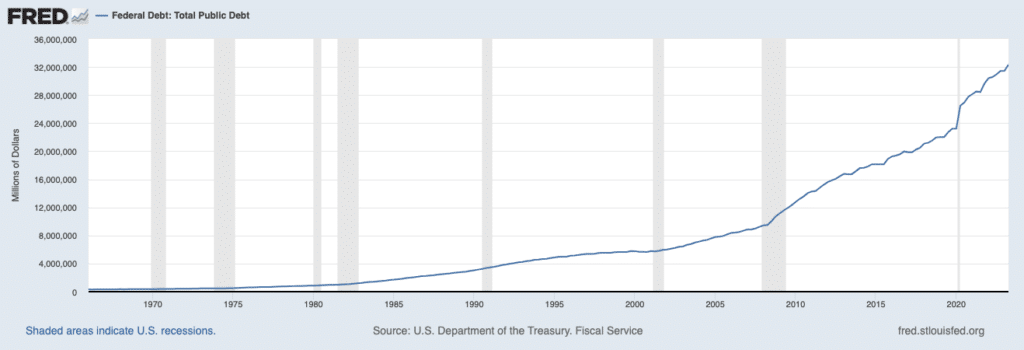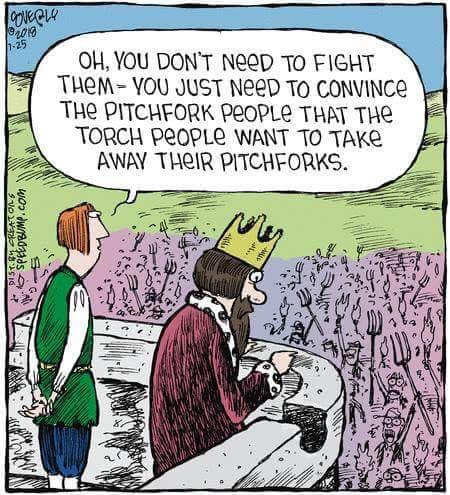
Economies run in cycles, both short and long-term.
With Debt levels running high, how will the long-term debt cycle be resolved? 1
I asked Google Bard’s AI 2 what it thought of 6 possible options I outlined for resolving high debt levels.
Upon receiving AI’s answers, I was reminded of a quote (incorrectly) ascribed to Winston Churchill:
Americans can always be counted on to do the right thing .. after they have exhausted all other possibilities.
My base case estimate is a twist on this quote. It is not that America will attempt all other possibilities before finally settling on the “right thing,” but rather the resolution of high debt levels3 will likely involve pursuing nearly all available options together. These options will not all be undertaken simultaneously, but all options will be attempted (except #5) before the cycle is resolved.
Here are the 6 options I presented to AI:
- “Debt Jubilee”
- Adoption of a hard money
- MMT : Modern Monetary Theory
- “Soft Default”
- “Hard default”
- Transition to a new system

